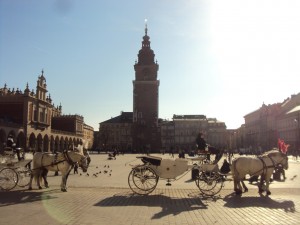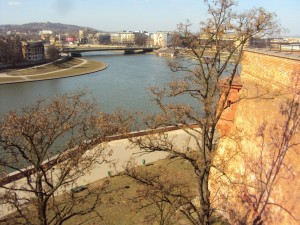SRs Konflikt om Ukrainas vacklande
Category: by sophie engström, EU, ukraina
Tags: EU-Ukraine Association Agreement, Tymoshenko, Ukraine
Dagens Konflikt behandlade ett så ovanligt ämne i svensk media som Ukraina. Programmet utgick från den eviga fråga, om Ukraina är en del av Centraleuropa eller den ryska hemisfären. För någon som bor i Lviv är frågan konstig. Detta är Centraleuropa och det finns knappast någon här som tvivlar på vad som är bäst för Ukraina. Men i de östra och södra delarna är svaret kanske inte lika självklart. Denna, en av de eviga frågorna i Ukraina, är mycket svår att ta beslut i och landets makthavare vacklar. Frågan är av stor historisk betydelse för om man vänder EU ryggen nu dröjer det länge innan frågan om samarbete ställs till Ukraina igen.
Det bästa Carl Bildt har gjort som utrikesminister är att initiera detta samarbete mellan EU och våra grannar i öster. För precis som Bildt säger, de är också våra grannar och det kan aldrig vara så att det endast är Rysslands (inrikespolitiska?) angelägenhet. Dessutom bör man påminna de minnessvaga att det var många som inte trodde på de baltiska länderna och Polen som en del av EU. Idag är det väl få som tvivlar på deras viktiga del av gemenskapen.
För Ukrainas del handlar det om att försöka bevara de mänskliga rättigheter och yttrandefrihet som ändå slagit rot i detta samhälle. Utan stöd från dess västliga grannar kan det bli svårt. Trycket från Ryssland är tufft och när det gäller mänskliga rättigheter är de inte bäst i klassen. Det handlar också om att försöka ge invånarna ett drägligt liv utan galopperande korruption. Ge dem högre löner, bättre infrastruktur, skickligare sjukvård etc etc. Det är troligare att Ukraina kan nå dit med hjälp av EU än med hjälp av Ryssland.
Det är dock synd att EU låst sig till att få tillstånd detta viktiga avtal med Ukraina till att handla om Julia Tymosjenko. För det första är Tymosjenko knappast någon garant för ett mer demokratiskt Ukraina och för det andra är det lättare att påverka Ukraina i rätt riktning mot mänskliga rättigheter när landet verkligen skrivit under avtalet. Min önskan är att EU skippar frågan om Tymosjenko nu och tar den när avtalet är undertecknat.





